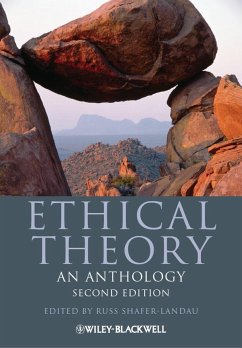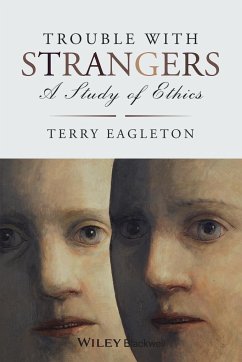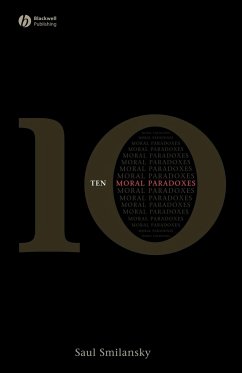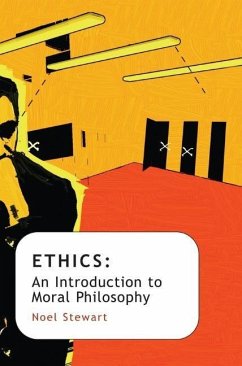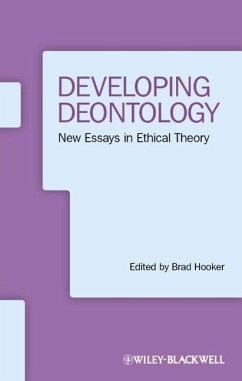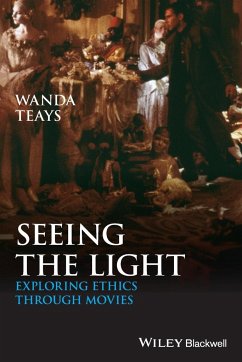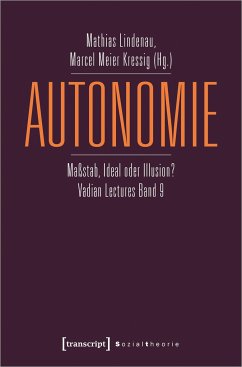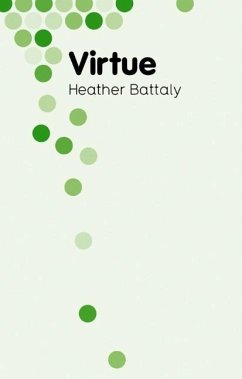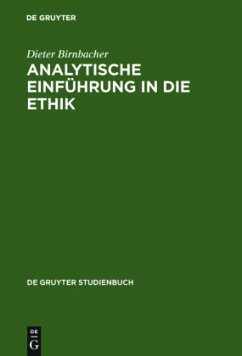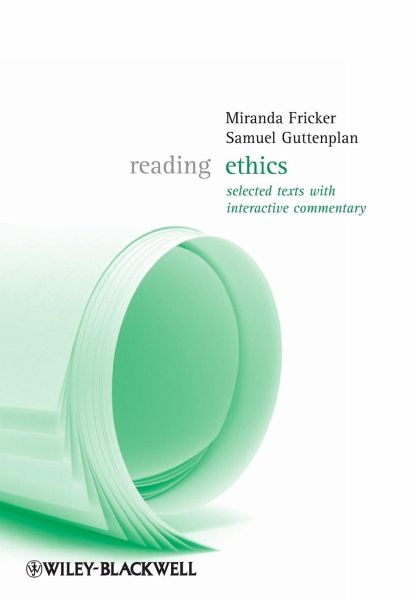
Reading Ethics
Selected Texts with Interactive Commentary
Herausgegeben: Fricker, Miranda; Guttenplan, Samuel
Versandkostenfrei!
Versandfertig in 2-4 Wochen
42,99 €
inkl. MwSt.

PAYBACK Punkte
21 °P sammeln!
This introductory text encourages students to engage with key problems and arguments in ethics through a series of classic and contemporary readings. It will inspire students to think about the distinctive nature of moral philosophy, and to draw comparisons between different traditions of thought, between ancient and modern philosophies, and between theoretical and literary writing about the place of value in human life.Each of the book's six chapters focuses on a particular theme: the nature of goodness, subjectivity and objectivity in ethical thinking, justice and virtue, moral motivation, t...
This introductory text encourages students to engage with key problems and arguments in ethics through a series of classic and contemporary readings. It will inspire students to think about the distinctive nature of moral philosophy, and to draw comparisons between different traditions of thought, between ancient and modern philosophies, and between theoretical and literary writing about the place of value in human life.
Each of the book's six chapters focuses on a particular theme: the nature of goodness, subjectivity and objectivity in ethical thinking, justice and virtue, moral motivation, the place of moral obligation, and the idea that literature can be a form of moral philosophy. The historical readings come from Plato, Aristotle, Hume, Kant and Mill; and the contemporary readings from Foot, Rawls, McDowell, Mackie, Nagel, Williams, Nussbaum and Gaita.
The editors' introductions to the themes, and the interactive commentaries they provide for each reading, are intended to make Reading Ethics come as close as possible to a seminar in philosophy.
Each of the book's six chapters focuses on a particular theme: the nature of goodness, subjectivity and objectivity in ethical thinking, justice and virtue, moral motivation, the place of moral obligation, and the idea that literature can be a form of moral philosophy. The historical readings come from Plato, Aristotle, Hume, Kant and Mill; and the contemporary readings from Foot, Rawls, McDowell, Mackie, Nagel, Williams, Nussbaum and Gaita.
The editors' introductions to the themes, and the interactive commentaries they provide for each reading, are intended to make Reading Ethics come as close as possible to a seminar in philosophy.



